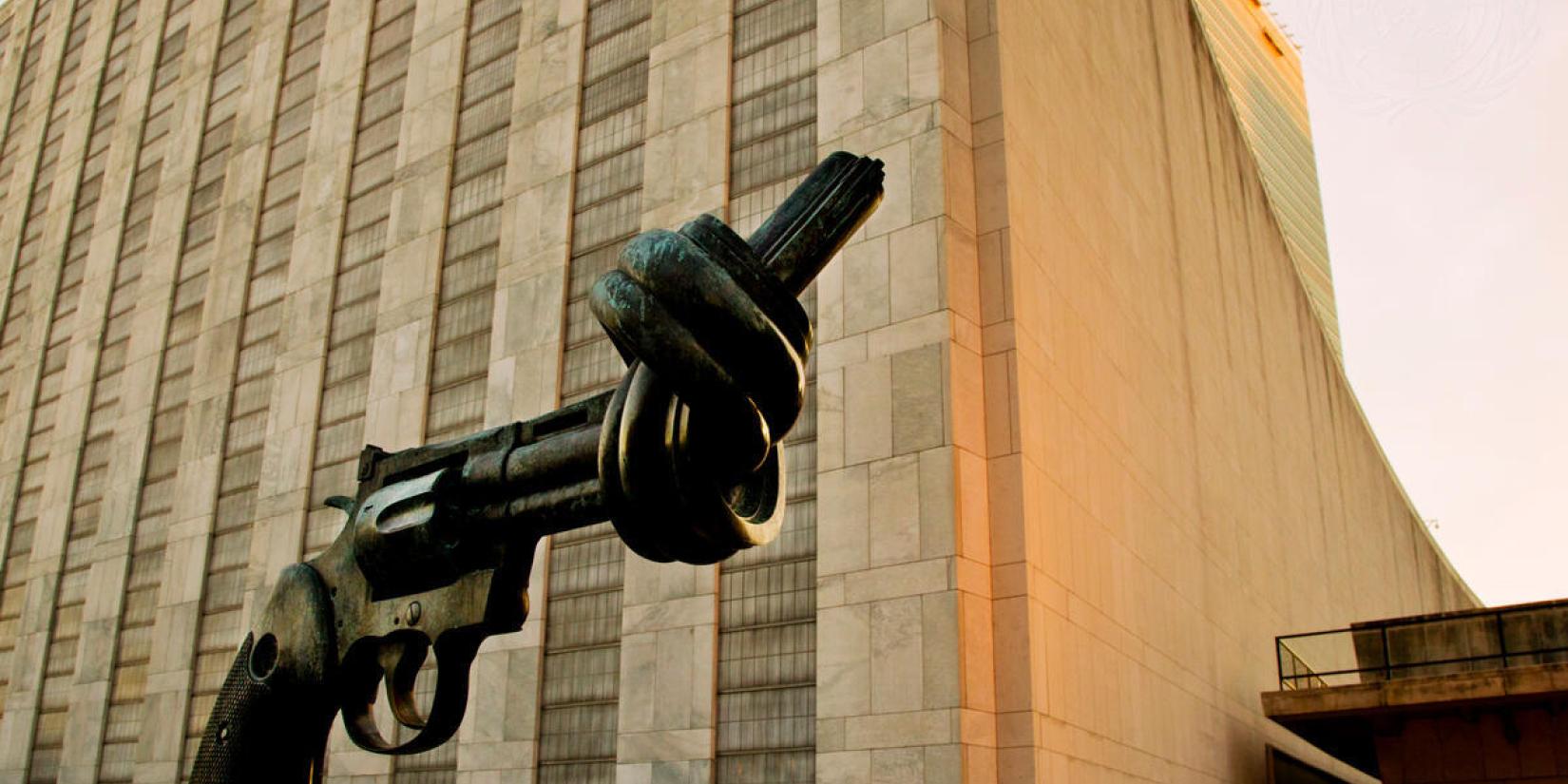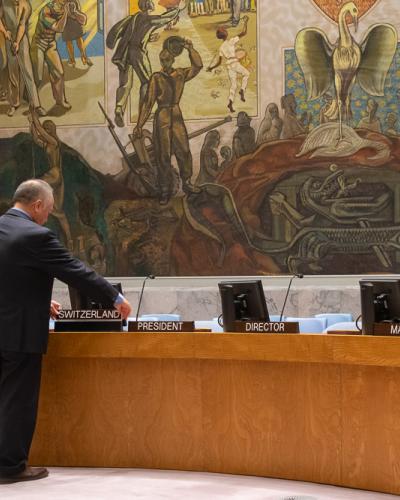In an open debate on 30 March, the UN Security Council discussed the "Silencing the Guns in Africa" initiative of the African Union (AU) – an association of African states. The initiative aims to end war, conflicts and gender-based violence on the African continent.
Switzerland supports efforts to achieve sustainable peace in Africa. The initiative is ambitious and faces numerous challenges. "Unfortunately, as in other parts of the world, weapons are still not silent in Africa. The illicit proliferation of small arms and light weapons and their ammunition continues to spur violence, threaten peace, tear apart the social fabric and hinder development," said Swiss Deputy UN Ambassador, Adrian Hauri, at the UN Security Council.
Against this background, Switzerland underlined four areas in the Council that can contribute to the success of "Silencing the Guns". First, the supply of and demand for weapons must be reduced. The consideration of political, economic and social factors, as well as respect for international law, are central to the prevention of violence and conflict. Second, local institutions must be strengthened so that they can provide sustainable public services, which strengthens the population's trust in state structures. Third, the link between climate change and conflict should be considered in all humanitarian and peace policy activities as well as in development cooperation. There is an urgent need for affected states to reduce their vulnerability to climate shocks in order to contribute to peace and security. Fourth, dialogue between conflict parties is central to defusing tensions before violence erupts and resolving existing conflicts. Such dialogue should systematically involve women and youth. In line with its tradition of engaging in mediation and good offices, Switzerland remains committed to providing platforms for dialogue.
"The weapons will not be silent as long as they are easier to obtain than a job or an apprenticeship. Our peace efforts must go hand in hand with confidence-building measures, the strengthening of institutions and the rule of law, the promotion of social cohesion, respect for human rights and international humanitarian law, and the creation of economic prospects, especially for young people," Hauri stressed in New York.




